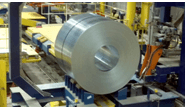Government/Policy

July 20, 2022
ITC Lets Import Duties on Brazilian CRC Expire
Written by Laura Miller
The US International Trade Commission has completed five-year sunset reviews of import duties on cold-rolled steel flat products from six countries. While determining that the duties on imports from five of the countries should be continued, the ITC also decided to allow the duties on Brazilian product to expire.
The ITC conducted full sunset reviews of the duties beginning in June 2021. Full reviews include hearings and investigative activities, while expedited reviews do not.
The ITC found that the domestic industry would be likely to suffer continuing injury should the antidumping duty orders on CR sheet from China, India, Japan, South Korea, and the UK be revoked. Therefore, the duties which were originally imposed in 2016 will remain in place for those countries for at least another five years.
At the same time, the Commission found that removing both antidumping and countervailing duties on CR imports from Brazil would not be likely to lead to the continuation or recurrence of injury to the domestic industry. Thus the duties, which have been in place for just five years, will now be revoked. CR steel flat products may now be imported from Brazil without being subject to antidumping or countervailing duties.
The ITC will release its full public report on these reviews by August 17, 2022.
The Commission also recently determined that import duties on corrosion-resistant steel products should not be allowed to sunset.
By Laura Miller, Laura@SteelMarketUpdate.com







